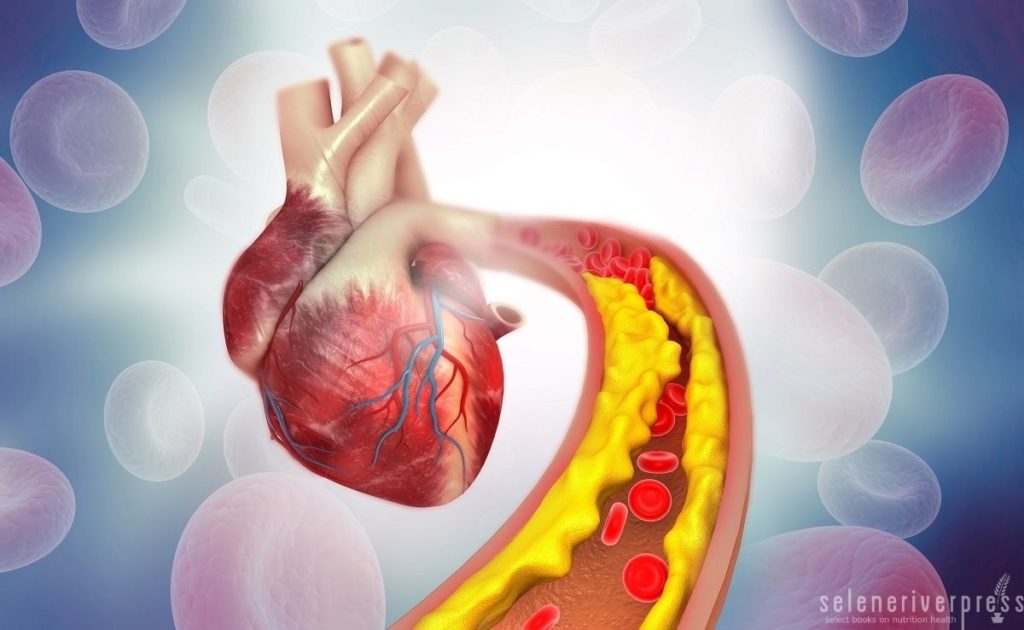Cholesterol, a waxy fat-like substance, is essential for making every cell membrane and structure throughout the human body, and is also crucial for protecting the nerve sheath. It plays a vital role in the production of hormones; it is the first step in making vitamin D in our skin; and it is essential for the production of bile acids that breakdown fats in the digestive process. Cholesterol is made in the liver, and only 20 percent of it comes from food. Even the brain makes its own cholesterol. Because of the blood-brain barrier, the brain cannot take up cholesterol from the blood. Medical science has targeted cholesterol as being both good and bad, and unintelligently blames it as a major cause of the rising rate of heart disease.
Cholesterol drugs are the most highly prescribed medication in the world, yet heart disease is still the number one cause of death worldwide. What is really needed in cholesterol management has been overlooked and ignored. Cholesterol provides the body with the essential constituents we need to balance our metabolic requirements in accordance with the normal cycles of nature. To maintain accurate cholesterol levels as we age, we need to make lifestyle changes and add particular nutrients and substances to our diet, but these adjustments must be tailored individually. Claiming that everyone should have the same lipid levels is absurd.
This is not rocket science—it is life science. The human body wants to preserve itself for as long as possible, and in the process it will begin to reduce many metabolic functions. Tissue reserves may become depleted; nutrients may be absorbed less effectively; and the rate of repair, if it becomes too overworked, may lead to higher ranges of cholesterol production. Yet the senior body has a compelling will to live, not die. It is futile to drive your car 100 miles an hour all the time and expect it to last, but this seems to be the westernized way of life. Unlike in other parts of the world, we do not honor the natural rhythms of aging.
The Blue Zones is a series of books by Dan Buettner that draws on research into the longest-lived cultures around the world. There are many interesting findings, and I highly encourage the series to those who want to learn about the lifestyle recommendations associated with longevity. However, I must add a caution. One of the recommendations is maintaining a 95 percent plant-based diet. This does not provide enough animal protein and fat, and furthermore not everyone can digest legumes.
A rising cholesterol level is a normal function of conserving body systems. It should not be discouraged. We age in a 30-year cycle of life, and in each cycle we must accommodate the direction of care to prepare for the next one. Trophotherapy, or the science of healing by applied nutrition, speaks to these wise ways.
For a wholistic approach to fluctuating cholesterol, consider these three primary ranges of nutrient supplements from Standard Process:
- Cyruta (3 tablets, 3 times daily) to prevent arterial plaquing. Cyruta, a concentrate of the green leaves of the buckwheat plant, contains the most abundant amount of rutin and other bioflavonoids such as hesperidin and quercetin. The lumen of the blood vessels can dry and crack, losing their elasticity with time. Cyruta acts to maintain the integrity of the blood vessel wall. It also contains seeds of the plant that break down excessive fat deposits that accumulate in the 100,000 miles of vasculature throughout the average body.
- Soybean Lecithin (3 softgels, 3 times daily*). Because this product only contains the fat of the soybean, it has no hormone-influencing substances (goitrogens) or possible allergy-stimulating proteins. It is simply the best resource of lecithin that we know of. Soybean Lecithin is primarily phosphatidylcholine and phosphatidylserine. Phosphorus balances excess calcium, and choline balances excess fat in the blood. Lecithin assists the transport, containment, and emulsification of lipids in the blood. In other words, it holds the cholesterol in solution until it reaches the liver, therefore preventing any adherence to the blood vessels. (*Caution: Do not take Soybean Lecithin within 2 hours of consuming any calcium foods or products. Otherwise, they will bond together, and the body will not be able to make use of the calcium.)
- Betafood (3 tablets per meal). A concentration of beet leaf tops and root, Betafood is high in bile-thinning and liver-clearing properties, and it assists in completing the journey of fats into the intestinal tract for elimination. Betafood contains high amounts of betaine for athletic endurance and methyl donors for B vitamin absorption and utilization as well as DNA methylation.
The optimal diet for managing cholesterol is the hunter-gatherer way of eating. Paleo-focused food consumption helps regulate the 20 percent of lipids in the bloodstream. You may add eggs and raw milk dairy, including cheese, to the usual Paleo diet. Only raw dairy should be part of these guidelines. (Before the pasteurization of milk, we faced no cholesterol challenges.)
Movement is also important. Walking 30–60 minutes daily, yoga, tai chi, biking, and swimming are all integral parts of metabolizing and utilizing essential body functions. If you stagnate, you die. Let us live!
Aging gracefully, happily, and in good health is possible, and we deserve it. We understand that half of wisdom is knowing what not to do. Knowing what to do is a priceless gift of the wise one within.
Images from iStock/Rasi Bhadramani (main), monkeybusinessimages (woman at the beach),


